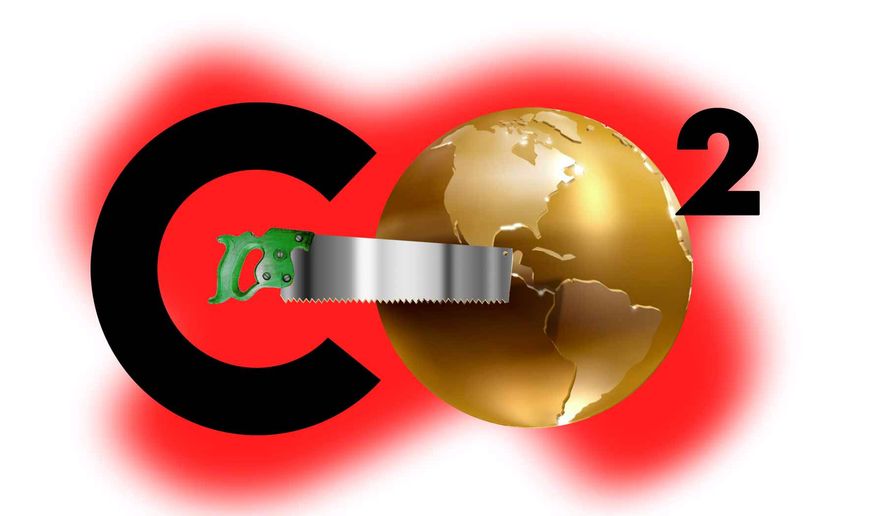OPINION:
For years crusaders like former Vice President Al Gore have claimed carbon emissions are a great threat to mankind’s continued existence. People laughed when he started. Now, thanks to unmeasurable amounts of infotainment, they take those claims seriously, embracing them with a kind of religious fervor and believing their activism is the only thing preventing the destruction of mankind.
In the just-enacted Inflation Reduction Act, for example, there are programs, tax hikes, subsidies, and grants projected to cost the economy something over $500 billion over the next ten years to bring the average global mean temperature down a fraction of a degree. If the Chinese don’t stop building coal-fired plants to produce electricity, whatever very expensive reductions in carbon emissions the U.S. will achieve for all that money will be wiped out and then some.
Carbon dioxide is, the United States Environmental Protection Agency says, the primary greenhouse gas emitted as the result of human activity including, it should be pointed out, respiration. To the acolytes who worship at the altar of climate change, this makes it evil, requiring eradication if not limitation. They’ve planted that idea in the minds of everyone from the youngest to the oldest Americans with a kind of fanaticism that leaves little room for honest debate.
This is why you should not be surprised to learn America is now suffering from a shortage of CO2, shock of shocks. CO2 has legitimate, even important industrial applications in, for example, the food and beverage industry. Reports are starting to appear that major companies food producers and giants in the over-the-counter beverage industry are at wit’s end because there isn’t enough of it to keep the fizz in your drink and your food items properly chilled as they’re moved from the factory to the frozen food aisle of your local grocery for too much longer.
Call it your government at work. Taking on problems, real and imagined, one by one, without considering how decisions made in one place or about one product might impact the entire marketplace.
The feds spend hundreds of billions every year, and no one, not even the Government Accountability Office or the White House Office of Management and Budget problems knows, within a hundred million give or take, how much to impose and enforce regulations that strangle industry to reduce the production of so-called greenhouse gasses to combat a problem we’ve been told for 30 years will cause the polar ice caps to melt in five. The result now is there isn’t enough CO2 to go around, which makes us wonder how long it will be before the White House or Congress will proclaim the need to subsidize the production of carbon dioxide domestically and its importation from overseas.
Given current policy, that makes no sense whatsoever. But, to paraphrase President Ronald Reagan, the secular patron saint of the limited government movement, when did anything the federal government does make sense?
Examples like this exist everywhere. Reports are appearing that California regulators are considering a ban on the purchase of gasoline-powered automobiles before the end of the next decade. They think that’s pro-environment, except it isn’t since it will keep older, less fuel-efficient, less pollution-producing older cars on the roads longer. Any environmental benefit the creation of an “alternative fuels only” vehicle marketplace by the government might achieve, and it’s a big presumption there will be any could be erased by the folks who hang on to cars like grandpa’s vintage, gasoline-powered 1969 FORD LTD Country Squire nine-passenger wagon and use it for quick trips to the store.
Students of physics understand that for each action in nature there is an equal and opposite reaction. Why don’t students of government get this/ If they did, we wouldn’t have spent so much of the post-pandemic period paying people to not go back to work, efforts to cap the price of prescription drugs wouldn’t be sending prices up, and things would make a whole lot more sense. Chalk it up to Armey’s Axiom that markets are rational, government is dumb. Is it too much to expect it should be otherwise?




Please read our comment policy before commenting.